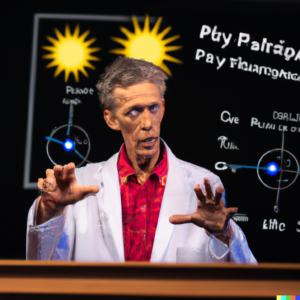Alchemical research
Much of what are known as Isaac Newton’s occult studies can largely be attributed to his study of alchemy.[2] Newton was deeply interested in all forms of natural sciences and materials science, an interest which would ultimately lead to some of his better-known contributions to science. During Newton’s lifetime, the study of chemistry was still in its infancy, so many of his experimental studies used esoteric language and vague terminology more typically associated with alchemy and occultism.[3] It was not until several decades after Newton’s death that experiments of stoichiometry under the pioneering works of Antoine Lavoisier were conducted, and analytical chemistry, with its associated nomenclature, came to resemble modern chemistry as we know it today. However, Newton’s contemporary and fellow Royal Society member, Robert Boyle, had already discovered the basic concepts of modern chemistry and began establishing modern norms of experimental practice and communication in chemistry, information which Newton did not use.
Much of Newton’s writing on alchemy may have been lost in a fire in his laboratory, so the true extent of his work in this area may have been larger than is currently known. Newton also suffered a nervous breakdown during his period of alchemical work, possibly due to some form of chemical poisoning (possibly from mercury, lead, or some other substance).[4]
https://en.wikipedia.org/wiki/Isaac_Newton%27s_occult_studies



